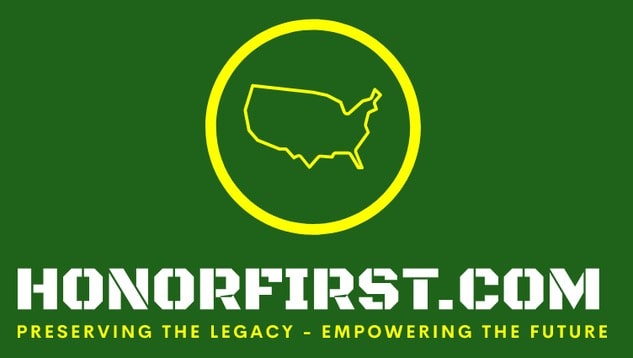December 17 - December 23IntroGood morning! Welcome to another This Week in USBP History! !!! New Release Alert !!! HONOR FIRST - United States Border Patrol Centennial Timeline 1924-2024 by Joseph Banco Border Patrol historian Joseph Banco has released a pivotal new book, "HONOR FIRST - United States Border Patrol Centennial Timeline 1924-2024," as part of his renowned "Honor First" series. This latest work celebrates over 100 years of the United States Border Patrol, showcasing the rich history and achievements of the agency since its inception on May 28, 1924. Banco masterfully compiles a timeline of significant events, key figures, and milestones, complemented by historical photographs. This book is an essential read for anyone fascinated by the legacy of the Border Patrol and the dedicated individuals who have served under its banner. Purchase a copy today on Amazon by clicking here! Esprit de Corps in the Border Patrol Navigating Challenges and Upholding Organizational Pride Introduction In the United States Border Patrol (USBP), "Esprit de Corps" is far more than a phrase; it's a foundational principle that binds agents together in their challenging yet noble profession. However, this vital spirit is currently facing unprecedented challenges. Morale within the Border Patrol, as reported, is among the lowest in federal agencies. This decline is not merely a statistic; it's a reflection of deeper issues that strike at the very heart of what it means to be a Border Patrol agent in today's complex and evolving landscape. I have consistently highlighted the concept of Esprit de Corps in every volume of "This Week in USBP History," drawing attention to its vital importance. The definition, thoughtfully developed in 2016 by a team including ranking HQ Border Patrol agents and a U.S. Army Lieutenant Colonel, encapsulates Esprit de Corps as a synergy of organizational pride and employee morale. Currently, these elements are under significant strain. Agents frequently find themselves feeling undervalued and questioning the impact of their work, particularly in light of policies that appear to be at odds with their core mission. The challenges extend beyond the policy of releasing individuals into the U.S. on their Own Recognizance (OR). According to CBP data, in Fiscal Year (FY) 2021, there were 1,662,167 encounters, and in FY 2022, this number rose to 2,214,652. The number of "gotaways" — individuals who evade detection after making an illegal entry — is also significant. In FY 2019, 150,090 gotaways were recorded along the Southwest border. This number rose by 159 percent to 389,155 in FY 2021, and in FY 2022, CBP recorded more than 600,000 gotaways. These figures represent not just policy issues but existential challenges that impact every aspect of the job. This blog post aims to delve into these complexities, exploring how Esprit de Corps can be sustained and even strengthened in the face of such challenges. It's about understanding the current state of the Border Patrol's morale, the role of leadership in navigating these turbulent waters, and most importantly, how the core values of 'Honor First' can continue to be a beacon for agents committed to their duty, despite the odds. Addressing Key Factors Affecting USBP Morale Perception of Being Valued The perception of being valued within the USBP is a multifaceted issue that requires a significant cultural shift. Recognizing and appreciating the hard work and dedication of agents is paramount. A tangible way to achieve this is through an increase in formal recognitions using the USBP Honorary Awards. Publicizing these recognitions can serve as a powerful affirmation that the organization values its members. Celebrating achievements and contributions not only boosts morale but also fosters a sense of pride and belonging among the agents. Leadership must prioritize the creation and implementation of employee-friendly policies that reflect an understanding and consideration of the agents' needs and challenges. This approach aligns with Simon Sinek's leadership philosophy, which emphasizes that leadership is not about being in charge but about taking care of those in your charge. By adopting this mindset, USBP leaders can cultivate an environment where agents feel genuinely supported and valued. This cultural shift towards valuing and supporting agents requires consistent effort and genuine commitment from leadership at all levels. It involves not only recognizing achievements but also providing a supportive work environment where agents' well-being is a top priority. Such an environment can significantly enhance agents' perception of being valued, contributing positively to their overall morale and dedication to the mission. Performing Meaningful Work The heart of morale in law enforcement is the belief in the meaningfulness and impact of one's work. For Border Patrol agents, this has become a pressing concern. The "What does it matter?" sentiment arises in the face of operational challenges, such as the high number of individuals entering the U.S. illegally and being released, along with those who evade detection. This sentiment reflects a deeper questioning of the impact and effectiveness of their efforts, leading to doubts about the meaningfulness of their work. Disconnect Between Field Agents and Higher Authorities A significant factor affecting morale is the perceived disconnect between the goals of Border Patrol agents and the directives from higher-level authorities, including CBP, DHS, and the current administration. Agents often feel that their primary objectives, like securing the border through removals and convictions, are not aligned with the policies set by these authorities. This disconnect can lead to frustration and a sense of disillusionment, as agents feel their understanding of the mission is not adequately shared or supported by those in leadership positions. Chief Jason Owens' Leadership in Reinforcing Esprit de Corps Chief Jason Owens, appointed as the 26th Chief of the U.S. Border Patrol on July 2, 2023, brings over 27 years of diverse experience to his role. His journey through various key leadership positions, including the northern and southern borders and the U.S. Border Patrol Academy, has equipped him with a deep understanding of the multifaceted challenges faced by the agency. A Leader with Comprehensive Field Experience Chief Owens' tenure as the Chief Patrol Agent (CPA) of the Del Rio Sector, one of the busiest southwest border sectors, and his role as CPA of the U.S. Border Patrol Academy, where he provided strategic vision and leadership, highlight his comprehensive field experience. This background is instrumental in his approach to leading the Border Patrol, especially in addressing the current challenges and complexities of border security. Commitment to the Workforce and the Mission During the Change of Command ceremony on September 29, 2023, Chief Owens' heartfelt remarks reflected his deep commitment to the Border Patrol's mission and its agents. He emphasized the endurance and resilience of the Border Patrol, acknowledging the challenges while expressing his unwavering support and pride in the workforce. His words, "Our superpower is that we endure. There's nothing that can be thrown our way that we won't overcome," resonate with the spirit of Esprit de Corps. Recognition and Support for Agents Chief Owens' leadership is marked by his dedication to recognizing and supporting his agents, even in the face of controversy. His commitment to honoring the sacrifices of agents, as demonstrated by his efforts to name the Uvalde Border Patrol Checkpoint after fallen Agent James R. Dominguez, underscores his respect for the agents and their service. This gesture, along with his support for agents involved in critical incidents, highlights his focus on acknowledging the bravery and dedication of the Border Patrol workforce. A Personal and Approachable Leadership Style Chief Owens' personal connection with the agents, as evidenced by his down-to-earth personality and genuine demeanor, fosters a sense of trust and respect within the organization. His ability to engage in meaningful conversations and his approachable leadership style contribute to a positive work environment, further reinforcing the Esprit de Corps. Conclusion: Upholding Esprit de Corps in Challenging Times As we navigate through these challenging times in the Border Patrol, the concepts of morale, meaningful work, and leadership take on heightened significance. The journey to bolstering morale and reinforcing Esprit de Corps is complex, yet it is a path that we must tread with determination and unity. The Border Patrol's strength lies in its people – agents who are dedicated, resilient, and committed to the mission of safeguarding our nation. Recognizing their value, ensuring their work feels meaningful, and addressing the disconnect between field agents and higher authorities are essential steps in nurturing a positive work environment. Chief Jason Owens stands as a pivotal figure in this journey. His leadership, deeply rooted in understanding, empathy, and a clear vision, is instrumental in guiding the Border Patrol through these times. His commitment to the principles of 'Honor First' and his unwavering support for his agents serve as a beacon of hope and inspiration. As we move forward, let us remember that our superpower lies in our ability to endure and overcome challenges. The spirit of Esprit de Corps is not just about enduring hardships; it's about thriving amidst them, driven by a shared mission and a collective sense of pride. To all the agents of the Border Patrol: your efforts are seen, your sacrifices are acknowledged, and your dedication is deeply appreciated. Together, under strong and empathetic leadership, we can continue to uphold the values of 'Honor First' and maintain the legacy of the Border Patrol as a resilient and honorable institution. May we continue to carry the spirit of Esprit de Corps in everything we do, moving forward with a renewed sense of unity and resilience. This week in USBP history, we highlight notable events that have contributed to the Border Patrol's rich heritage. On December 20, 1908, Jeff Milton, a notable law enforcement figure, sought an extension of his leave, approved by Frank Berkshire, a key figure in the Patrol's early days. This event, though before the Border Patrol's inception, underscores the influence of early law enforcement on the Patrol. On December 21, 1928, in El Paso, Texas, Inspectors Crossett, Pugh, and Rogers engaged in a gunfight with alcohol smugglers, demonstrating the Patrol's commitment to enforcing the law. Lastly, on December 22, 1934, the concept of a Border Patrol Academy began taking shape with Chief Willard Kelly's proposal for a structured training program, a significant step in the Patrol's development. These moments, along with numerous others, contribute to the Border Patrol's enduring story. There are no Newton-Azrak Award action anniversaries this week. However, some Newton-Azrak Award recipients do not have a date associated with their actions. Such is the case with Senior Patrol Agent C. James Engelhardt and Supervisory Border Patrol Agent Stephen S. Martin Jr., who are highlighted this week. Also, we solemnly remember four of our fallen on the anniversaries of their deaths. Enjoy and have a great week! Cliff P.S. - As an open and continuous invitation to current and former USBP employees, I am always accepting photos to post in the USBP Photo Galleries and in the Upholding Honor First pages. I sure would appreciate you visiting those pages and sending me anything that you think I could post (just send them to [email protected]). As always, make sure to explore all of the hyperlinks to the documents and pages. Finally, please forward this blog to whomever you think may enjoy it. ESPRIT DE CORPSThe workplace climate resulting from a combination of organizational pride and employee morale.
Esprit de corps is reinforced through the shared goals, mission and values of the organization and its employees. The definition turns Esprit de Corps into a simple formula and defines parts that comprise organizational pride and employee morale. Esprit de Corps = Organizational Pride + Employee Morale Esprit de Corps is the key to a healthy organization and engaged employees. Honor First is foundational to the Border Patrol's organizational pride and integral to its Esprit de Corps. THROWBACK PHOTO OF THE WEEKBound by Duty and Remembrance Laredo Sector's Tribute in Jacksonville This deeply moving 2001 photograph taken in Jacksonville, Florida, features the Laredo Sector Pipes and Drums, part of the lineage that led to the formation of the Border Patrol Pipes and Drums in 2007. In a solemn ceremony, they honored Border Patrol Agent Jason Panides, and then, in a heartfelt gesture of unity, paid tribute to Agent John Charles 'Charlie' Gigax. Although Charlie's Line of Duty Death is inscribed at the National Law Enforcement Memorial, it remains unrecognized by the U.S. Border Patrol. Poignantly, these two Laredo agents rest in eternal peace just 100 feet apart. The Gigax family, seen in the background by Charlie's grave, witnessed this act of solidarity and remembrance. This image captures the spirit of the Border Patrol community, committed to honoring their own, regardless of the distance or time, in a shared landscape of memory and respect. DOCUMENTS AND EVENTS1908
1919
1928
1934
1944
1962
NEWTON-AZRAK AWARD ACTION ANNIVERSARIESFollow this link to see examples of USBP employees Upholding Honor First.
There are no Newton-Azrak Award action anniversaries this week. However, some Newton-Azrak Award recipients do not have a date associated with their actions. Such is the case with Senior Patrol Agent C. James Engelhardt and Supervisory Border Patrol Agent Stephen S. Martin Jr., who are highlighted this week. 1997 C. James Engelhardt Senior Patrol Agent Tucson Sector Stephen S. Martin Jr. Supervisory Border Patrol Agent Tucson Sector Border Patrol Agent C. James Engelhardt and Supervisory Border Patrol Agent Stephen S. Martin, Jr., intercepted what they believed to be radio transmissions between a Border Patrol agent and drug traffickers. After proceeding to the area described in the transmissions and summoning assistance, Agents Engelhardt and Martin intercepted a 1,200-pound shipment of cocaine valued at $7,800,000. Because they suspected a colleague of involvement in the smuggling operation, they notified the DOJ Office of the Inspector General. Their action led to an investigation by the OIG Tucson Field Office, the Drug Enforcement Administration, and the U.S. Customs Service. Investigators gathered physical evidence that placed the suspect Border Patrol agent next to the cocaine-laden vehicle. The investigation also revealed that the agent was involved in the importation of drugs from Mexico. Agents Engelhardt and Martin were key witnesses at the agent's trial. The agent was convicted of drug trafficking and sentenced to 30 years' incarceration. Three co-conspirators were indicted on charges of conspiracy and possession with intent to distribute a controlled substance; they await trial. The investigation also resulted in the seizure of $217,000. The efforts of Border Patrol Agents Engelhardt and Martin are particularly noteworthy because they were undertaken at substantial personal risk. The small rural location where these agents lived and worked was also the home of the corrupt agent and his criminal associates. Border Patrol Agent C. James Engelhardt and Supervisory Border Patrol Agent Stephen S. Martin, Jr., displayed tenacity and courage throughout this investigation and prosecution. U.S. BORDER PATROL FALLEN ANNIVERSARIESAs of November 14, 2023 the U.S. Border Patrol has suffered 157* fallen. Titles:
The following names hold a distinguished position, as they have made the ultimate sacrifice in their unwavering commitment to uphold the oath each officer took to protect and defend the United States of America. The facts concerning each officer are presented with minimal editing to preserve the "language of the day" found in the original reports, providing readers with a sense of historical context. In compliance with the Privacy Act of 1974, the cause of death for employees who lost their lives in the line of duty due to exposure to lethal illnesses will not be disclosed. * Please note that although the circumstances surrounding their deaths met the criteria for Line-of-Duty Deaths at the time, Patrol Inspector Garvis Field Harrell, Border Patrol Agent John Charles Gigax, and Border Patrol Pilot Howard H. Gay, who lost his life in the action that earned him the Newton-Azrak Award, are not officially recognized as fallen by either the Customs and Border Protection or the U.S. Border Patrol. Nonetheless, HonorFirst.com respectfully recognizes and includes Inspector Harrell, Agent Gigax, and Pilot Gay among those honored as having fallen in the line of duty. 1950
Richard D. Clarke Date of Birth: December 6, 1926 Entered on Duty: February 23, 1949 Title: Patrol Inspector End of Watch: December 18, 1950 Details: At about 1:00 p.m. on December 18, 1950, Patrol Inspector Richard D. Clarke and his teammate, Patrol Inspector Ralph L. Trantor, took Eulalio Cordero, an illegal alien, into custody in south El Paso. They were bringing him to headquarters by automobile for further questioning when the alien suddenly stabbed Inspector Clarke in the heart. His death was instantaneous. The alien then seized Inspector Trantor's gun. Patrol Inspector Trantor slammed on the car's brakes, held on to the gun and threw himself into the back seat where he grappled with the alien and succeeded in holding him until police officers arrived. During the struggle, Trantor's gun was discharged once, the bullet passing through a car seat. Inspector Trantor was badly bitten on the face and arms. The incident began as a routine immigration procedure. Inspector Clarke questioned Cordero on a street in El Paso, Texas. First claiming to be a citizen of the United States, he later admitted he was an illegal alien. Cordero was charged with murder. Gravesite 2004 George R. DeBates Date of Birth: November 19, 1972 Entered on Duty: April 25, 1999 Title: Border Patrol Agent End of Watch: December 19, 2004 Details: On December 19, 2004, Agent George R. DeBates was involved in a single-vehicle accident while on patrol near Pisinimo, Arizona. He died as a result of his injuries. Agent DeBates was working on a camp detail while assigned to the Casa Grande Station. Agent DeBates is the fourth Department of Homeland Security employee to die in the line of duty since the Department was created in March 2003. Originally, from Wisconsin, Agent DeBates was a graduate of the 403rd session of the Border Patrol Academy. A four-year veteran of the Border Patrol, Agent DeBates was assigned to the Casa Grande Station, on detail to the Ajo Station. Gravesite 2019 Luis O. Peña Jr. Date of Birth: July 16, 1977 Entered on Duty: January 27, 2003 Title: Border Patrol Agent End of Watch: December 23, 2019 Details: On December 23, 2019, Border Patrol Agent Luis O. Peña Jr. succumbed to complications related to significant injuries he received from a vehicle accident (roll over) on the Tohono O’odham Nation on October 18, 2007. BPA Peña was medically retired on October 8, 2010. Agent Peña entered on duty with the United States Border Patrol on January 27, 2003, as a member of the 538th session of the Border Patrol Academy. He was assigned to the Casa Grande Border Patrol Station in the Tucson Sector following his graduation. Agent Peña served with the United States Border Patrol for over seven years.
Comments
|
Clifford GillBlog author, retired U.S. Border Patrol Assistant Chief and, current U.S. Border Patrol employee advocate. Ray HarrisSite founder and owner, former Supervisory Border Patrol Agent and retired Immigration Special Agent. Joseph BancoU.S. Border Patrol historian and retired Deputy Chief Patrol Agent. Archives
July 2024
I prefer that you leave comments. However, if you wish to contact me, please do so by emailing [email protected].
|
- Home
-
For USBP Applicants
-
USBP Pages and Links
- Firearms Qualification Course
- Military Time Buy Back
- Station MWRs
- Transitioning Out of the USBP
- Fast & Furious
- U.S. Border Patrol Fallen >
- Honor First and Esprit de Corps
- USBP Photo Galleries
- U.S. Border Patrol History >
- U.S. Border Patrol Honorary Awards
- Upholding Honor First >
- U.S. Border Patrol Authorized Devices
- Border Patrol Stories
- What's Important Now - Academy Podcast
- Badges
- Veterans
- Tips for the Media
- Links
- Acronyms
- Border Patrol Locations
- Sector/Station FaceBook Pages
- Ten Codes
- Online Forums
- Search
- Home
-
For USBP Applicants
-
USBP Pages and Links
- Firearms Qualification Course
- Military Time Buy Back
- Station MWRs
- Transitioning Out of the USBP
- Fast & Furious
- U.S. Border Patrol Fallen >
- Honor First and Esprit de Corps
- USBP Photo Galleries
- U.S. Border Patrol History >
- U.S. Border Patrol Honorary Awards
- Upholding Honor First >
- U.S. Border Patrol Authorized Devices
- Border Patrol Stories
- What's Important Now - Academy Podcast
- Badges
- Veterans
- Tips for the Media
- Links
- Acronyms
- Border Patrol Locations
- Sector/Station FaceBook Pages
- Ten Codes
- Online Forums
- Search
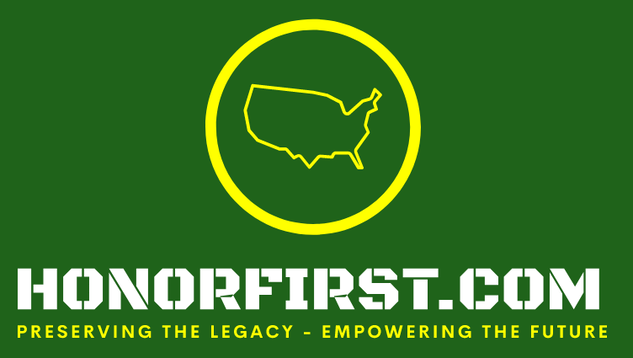

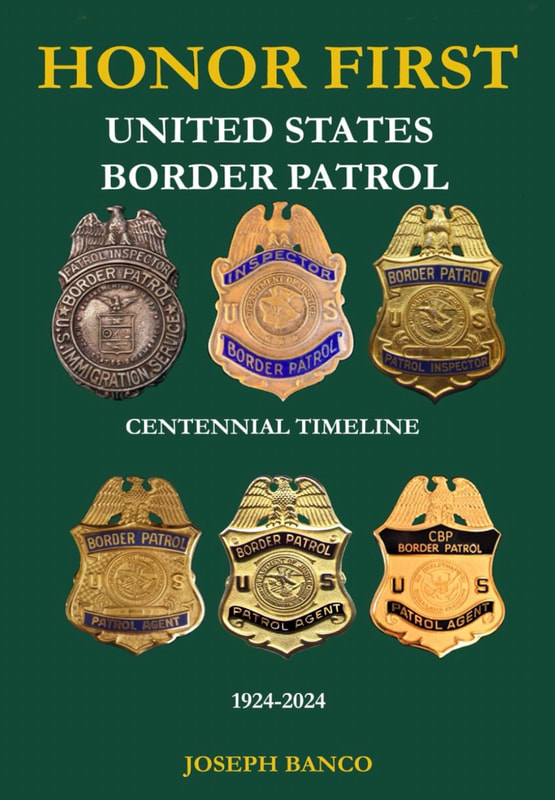
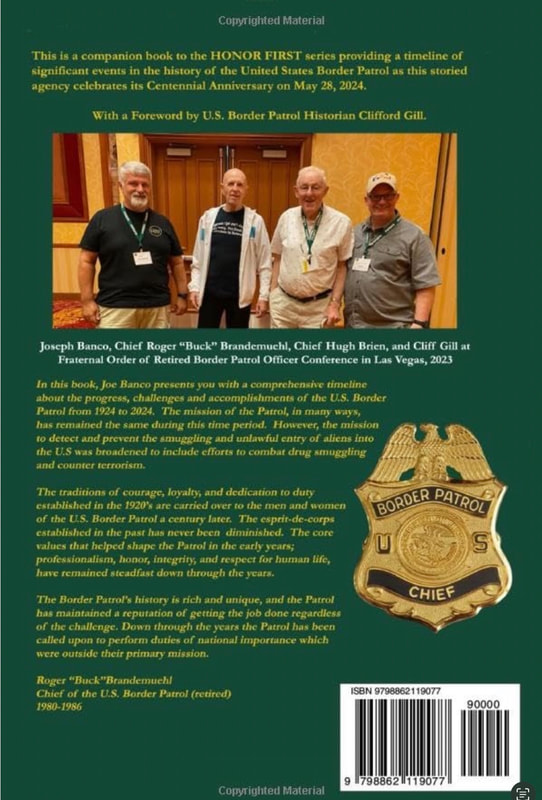
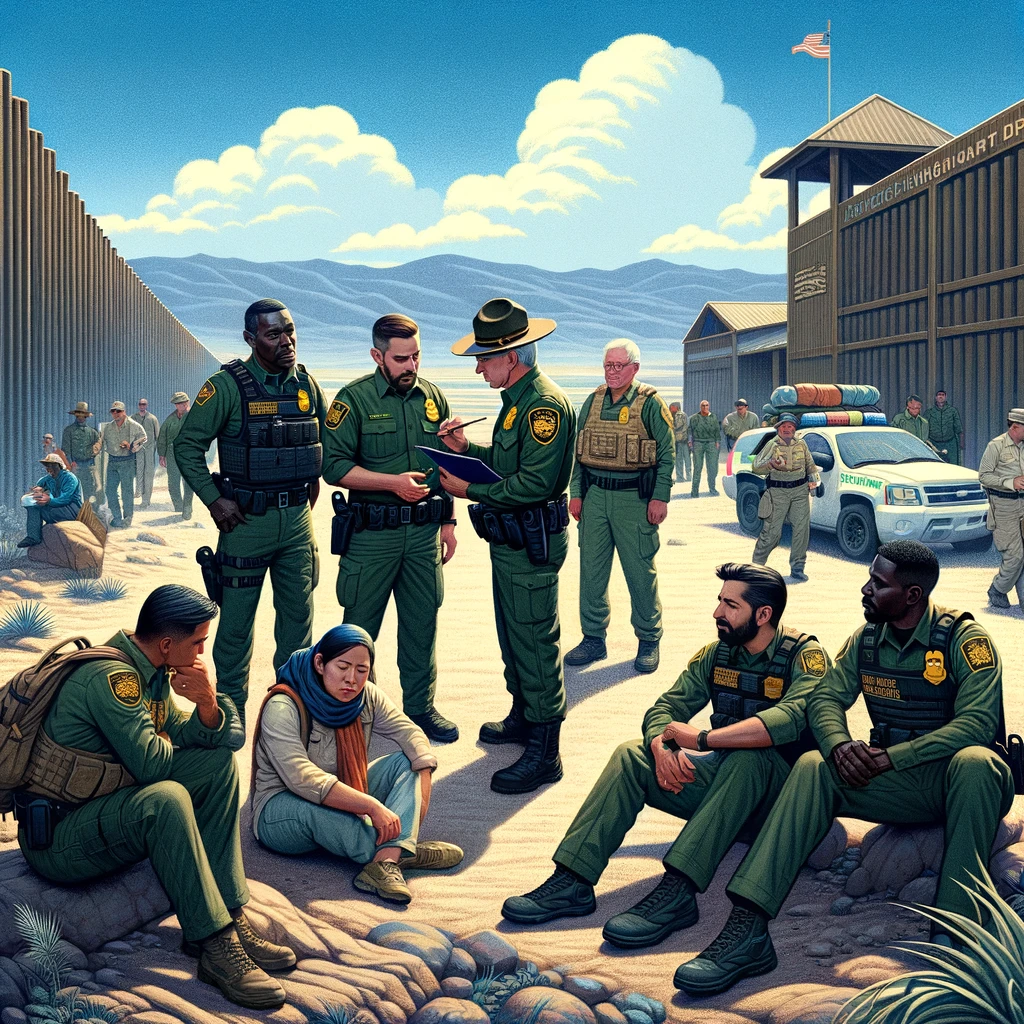
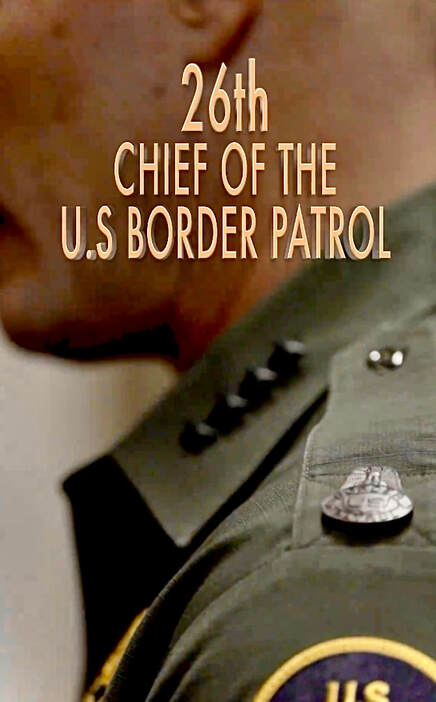
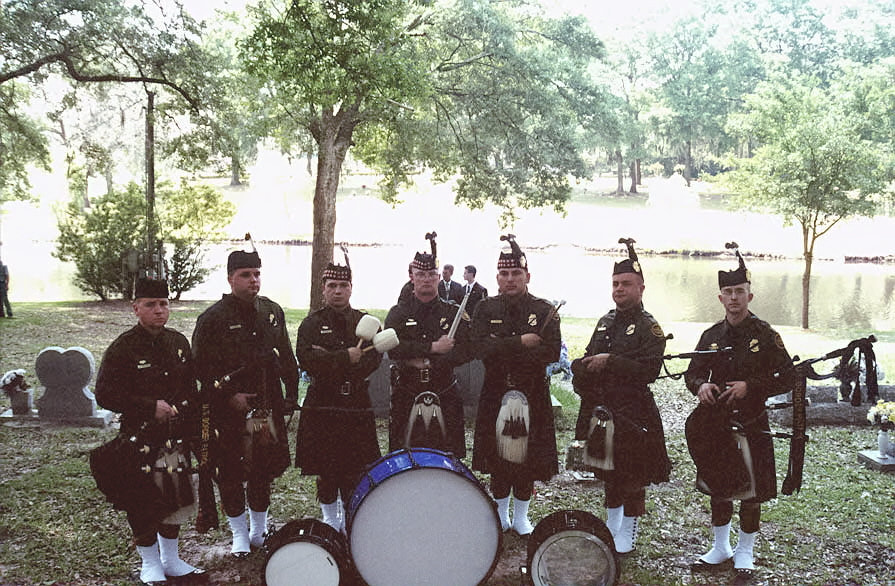
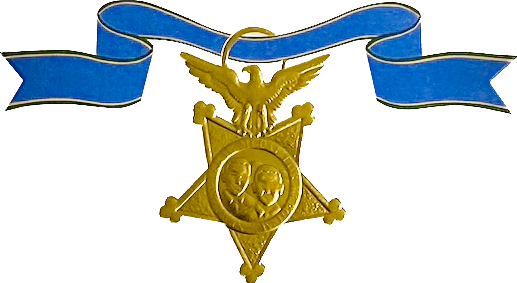
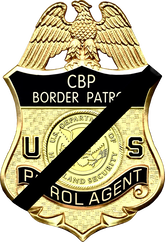
 RSS Feed
RSS Feed
